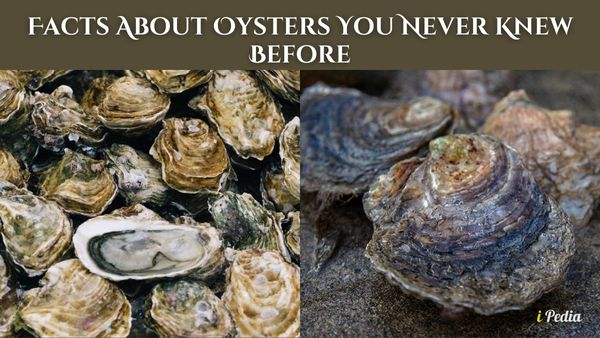- Advertisement -
Oysters play a significant role in marine and coastal settings, but they are threatened on many fronts, including exploitation, pollution, and changing ocean conditions. Therefore, it is essential to preserve oyster habitat and rehabilitate reefs.
- Oysters consume food by pumping water through their gills, and while doing so, act as a sort of sieve by catching algae and other debris. Therefore, oysters contribute to keeping the equilibrium of their ecosystems by cleansing the water.
- Gender changes in oysters. The majority are male at first, but some become female after one or two spawns.
- One of the most endangered marine environments on Earth is oyster reefs, which have lost between 85% and 90% of their natural reefs over the previous century.
- Few oysters naturally generate jewelry-quality pearls; most of the time, a person must open the shell of a cultured oyster and insert a grain of sand or another type of seeding material.
- Oysters create small larvae that swim through the water in search of a surface to land on and begin their lifelong growth, such as other oyster shells. These larvae get attached and are known as spit. Spat accumulate in beds or reefs as they mature into adults.
- Storm and tide energy is dispersed by oyster reefs, which preserve coasts by halting erosion and preserving estuary waters that serve as spawning grounds for marine life. These reefs can be moved or buried by extremely powerful storms.
- Oysters have three chambered hearts that provide their bodies with colorless blood. They have gills for breathing, just like fish.
- Although wild oysters can live for 25 to 30 years, the majority don’t make it past six.
- Stone crabs, fish like black drum, several varieties of sea snails, and sponges that enlarge holes in oyster shells to establish colonies all prey on eastern oysters.
- The number of oysters is now at an all-time low. Some populations have been completely wiped off while others have seen population declines due to erosion from construction, wetland loss, pollution, overharvesting, shifting ocean conditions, freshwater discharges, disease, and harmful fishing gear.
- Shells from oysters can be recycled. In coastal areas, restaurants and other organizations gather them to create fresh reefs.
Also Read – Can fish hear?
- Advertisement -



